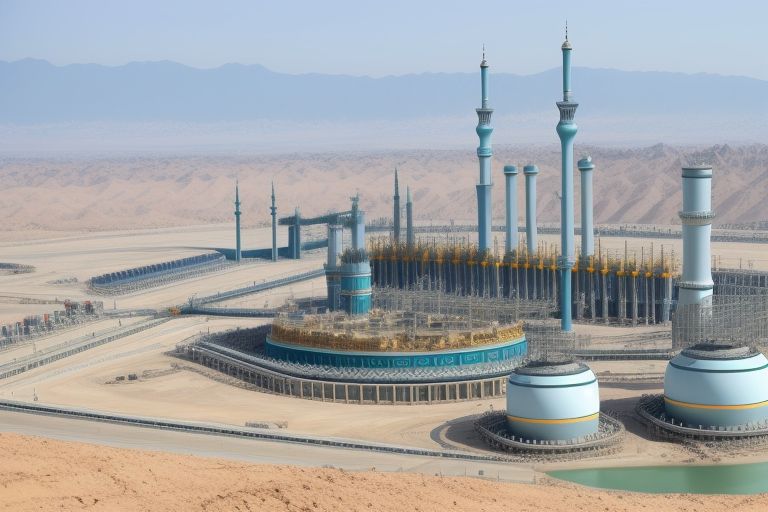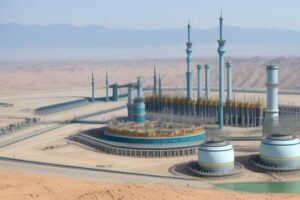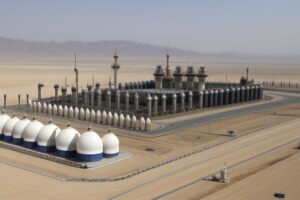The Significance of Saudi Arabian Dates in Culture and Trade
Introduction to Saudi Arabian Dates
Saudi Arabian dates have long been a symbol of the nation’s rich agricultural heritage and are considered an essential part of the country’s culture and daily life. With their natural sweetness, nutritional benefits, and cultural significance, dates play a crucial role in the diet of the Saudi people and the broader Middle Eastern region. Saudi Arabia is one of the world’s largest producers of dates, and the Kingdom’s climate and soil conditions make it an ideal location for date cultivation. The role of dates in Saudi Arabia extends beyond food; they are also deeply woven into social traditions, religious practices, and the nation’s economy.
The Importance of Dates in Saudi Culture
Dates have significant cultural and religious importance in Saudi Arabia. They are mentioned in the Qur’an and are often associated with health, hospitality, and generosity. Traditionally, dates are consumed during religious events such as Ramadan, when Muslims fast from dawn until sunset. It is customary to break the fast with dates and water, a practice believed to have originated from the Prophet Muhammad’s teachings. Dates are also used in a variety of social and celebratory occasions, such as weddings, Eid celebrations, and family gatherings.
The variety of dates available in Saudi Arabia is vast, with many different types suited to various preferences. Some of the most popular varieties include the Medjool, Sukkari, and Ajwa dates, each offering unique flavors, textures, and uses. Dates are also commonly served with Arabic coffee, an essential part of Saudi hospitality, symbolizing warmth and generosity.
Saudi Arabia as a Leading Date Producer
Saudi Arabia is one of the world’s largest producers and exporters of dates. The Kingdom’s vast date palm plantations, spread across the central and eastern regions of the country, produce millions of tons of dates each year. The climate of Saudi Arabia, with its hot summers and minimal rainfall, provides an ideal environment for growing dates. The date palm trees thrive in the desert landscapes, where they are cultivated using both traditional and modern farming techniques.
The Kingdom is home to over 300 different varieties of dates, and many of these varieties are sought after in international markets for their high quality. Saudi Arabia’s dates are exported to numerous countries worldwide, especially to the Middle East, Europe, and Asia. The demand for dates has increased due to their health benefits, versatility in cooking, and use in traditional and modern desserts.
Health Benefits of Saudi Arabian Dates
Dates are highly nutritious and are packed with essential vitamins, minerals, and fiber. They are rich in natural sugars such as glucose, fructose, and sucrose, making them an excellent source of quick energy. Dates also provide a high content of potassium, magnesium, and iron, which contribute to the proper functioning of the body. Additionally, dates are known for their high fiber content, which aids digestion and helps regulate blood sugar levels.
Consuming dates regularly can promote heart health, improve bone strength, and support the immune system. The antioxidants found in dates help protect the body from oxidative stress and reduce inflammation. With their natural sweetness, dates serve as a healthy alternative to processed sugary snacks, making them a preferred choice for those seeking a nutritious snack.
Dates and Saudi Arabia’s Economy
The date industry plays an essential role in Saudi Arabia’s economy, especially in rural areas where date farming provides livelihoods for thousands of families. Date production and export contribute significantly to the agricultural sector, and the Kingdom’s government has invested in modernizing date farming techniques to increase productivity and improve quality.
In recent years, Saudi Arabia has developed a date processing industry, turning raw dates into a wide variety of value-added products. These include date paste, date syrup, and date-based snacks, which are increasingly popular both locally and abroad. The Kingdom’s commitment to enhancing its date industry has resulted in the creation of specialized markets, festivals, and trade events such as the King Abdulaziz Date Festival, which celebrates the Kingdom’s date cultivation heritage and promotes its global trade.
The Future of Saudi Arabian Dates
With the growing global interest in healthy and natural foods, the future of Saudi Arabian dates looks promising. The Kingdom’s date industry is continuously innovating, developing new date-based products, and expanding its reach into international markets. Saudi Arabia’s Vision 2030 plan, which focuses on diversifying the economy, includes initiatives to promote the agricultural sector and support the global export of Saudi dates. Furthermore, sustainability efforts are being made to ensure that date farming remains viable in the long term, with a focus on water conservation and environmentally friendly farming practices.
Conclusion
Saudi Arabian dates are much more than just a food source; they are an integral part of the Kingdom’s culture, economy, and heritage. From their religious and cultural significance to their nutritional benefits, dates are central to life in Saudi Arabia. As one of the world’s largest producers of dates, Saudi Arabia continues to play a key role in the global date market. The Kingdom’s commitment to innovation, quality, and sustainability ensures that Saudi dates will remain a cherished product both locally and internationally.
For those planning to visit Saudi Arabia, understanding the SAUDI VISA FOR US CITIZENS and SAUDI VISA FOR POLISH CITIZENS can help make the travel process smoother.














Post Comment